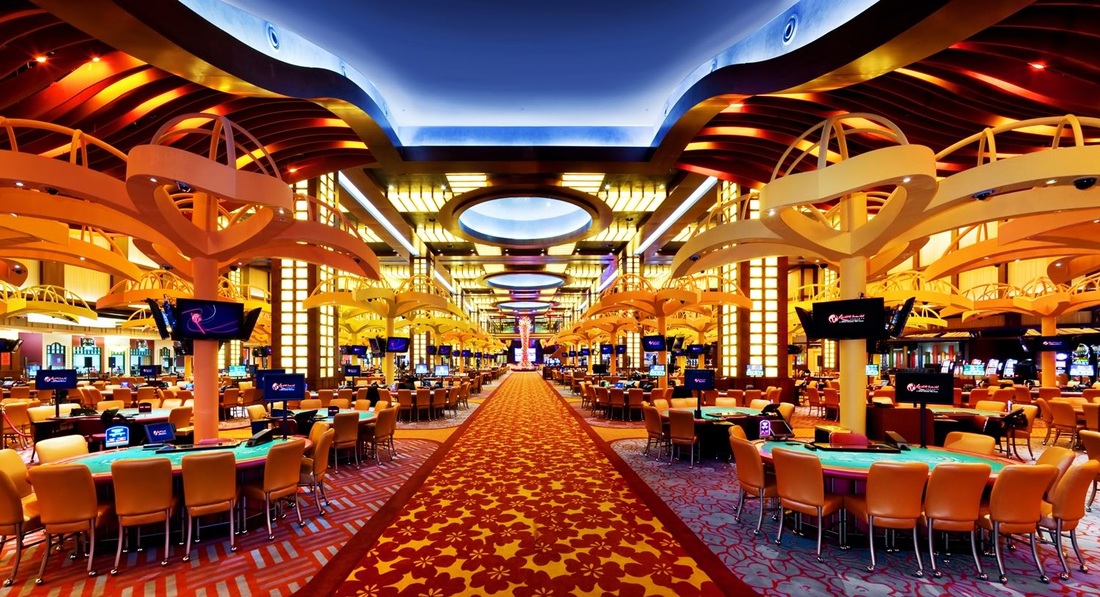The Mystery of Gambling Game Superstitions

In the world of gambling, in which chance and strategy intersect, a unique tapestry of beliefs manifests—one that intertwines luck, fate, and the enigmatic nature of casino games. Casinos, bustling with excitement and anticipation, are not just places for placing bets; they are also arenas in which superstitions thrive. Ranging from the novice player to the seasoned gambler, these mysterious practices often shape how individuals approach the games they play, holding the belief that their actions can affect the outcome in ways that go beyond mere probability.
When players gather around roulette wheels, blackjack tables, and slot machines, the atmosphere is thick with stories of lucky charms, rituals, and codified behavior that defy logic yet provide a sense of comfort. đá gà trực tuyến It could be the case that it’s wearing a specific outfit, following a particular sequence of bets, or even avoiding certain numbers, the attachment to various superstitions reflects a deep-rooted desire to control the uncontrollable. This article delves into the captivating world of casino game superstitions, examining the beliefs that both entertain and mystify those who dare to play.
Historical Origins of Superstitions
Betting activities have long been interwoven with an host of superstitions that trace to early societies. The origins of these ideas can be associated to humanity's fundamental wish to influence the uncertain outcomes connected with fortune and chance. In primitive civilizations, games of chance were often linked to religious practices. Gamblers would call upon favor or seek favor from gods, believing that their actions could influence the results in their advantage. This foundation laid the basis for the multitude of superstitions that spread as casino games evolved over time.
During the medieval age, gambling became a popular activity across Europe, and with it, a colorful tapestry of superstitions emerged. Participants adopted numerous rituals and charms, believing they could change the results of games. The value of digits, in particular, began to manifest in superstitions related to card games and dice. The number 7 was often considered lucky, while other numbers carried negative connotations. These notions mirrored the societal contexts of the time, evolving as they moved through generations and adapted to different gaming environments.
As gaming establishments appeared in the 17th century, particularly in Italy and France, the atmosphere surrounding gambling became imbued in enigma. The growing availability of gambling activities allowed for the dissemination and variation of superstitions among players. Concepts like fortunate charms, designated seating arrangements, and rituals gained importance, creating a unique culture within betting houses. As these customs continued to thrive, they became fundamental to the essence of casino activities, illustrating how history and society shape the convictions that influence how gamblers connect with chance.
Popular Gambling Superstitions
Superstitions surrounding casino activities are abundant and diverse, reflecting the hopes and anxieties of players as they engage in chance-based games. One of the most prevalent beliefs is that certain digits bring luck or misfortune. For example, the number 7 is often seen as a favorable digit, frequently embraced by gamblers looking for a positive outcome. Conversely, the digit 13 is routinely considered unlucky, leading many gamblers to steer clear of it during their gambling periods.
Another frequent superstition relates to practices that players believe can affect their odds. It could be blowing gently on the dice before a roll, using a specific gesture to place a bet, or even wearing specific items of attire, many individuals feel that these rituals can sway luck in their benefit. These rituals offer a feeling of power in an otherwise random environment, strengthening the idea that luck can be created through individual beliefs and habits.
Finally, the environment and vibe of the gambling house itself adds to myths. Many players suggest that the presence of certain icons, such as four-leaved clovers or lucky tokens, can enhance their chances of winning. Additionally, gamblers might adhere to the belief that winning streaks can be interrupted by mundane events, such as a person walking past or a accident at the table. The shared environment in a gambling house can amplify these superstitions, creating a communal culture of myths that transcends single encounters.
Impact of Superstitions on Players
Superstitions play a significant role in the mindset of casino players, often affecting their behavior and choices. Many gamblers believe that luck can be manipulated through different rituals, such as wearing a lucky charm, selecting specific colors, or steering clear of particular digits. This dependence on superstitions can create a feeling of control in an environment that is inherently unpredictable. Players often feel more self-assured and involved when they feel that their actions could sway the result of a game in their advantage.
The influence of these superstitions extends past individual players, affecting the overall atmosphere within the casino. For example, a player who holds the belief in the luck of a certain slot machine might attract a crowd, as onlookers are intrigued by their apparent luck. This collective belief can amplify excitement and create a dynamic environment, leading to an captivating experience even for those who may not necessarily be superstitious. The buzz around certain games can lead to increased participation and extended playing sessions, supporting the casino's vibrant social scene.
In some cases, superstitions can lead to harmful effects for players. Depending too much on rituals can result in poor gambling decisions, as some may overlook basic strategies in favor of baseless beliefs. Additionally, the pressure to perform rituals may increase anxiety and tension, detracting from the pleasure of the experience. Ultimately, while superstitions can enhance the thrill of playing casino games, they can also lead to poor choices that overshadow the enjoyment and amusement intended in the casino experience.
